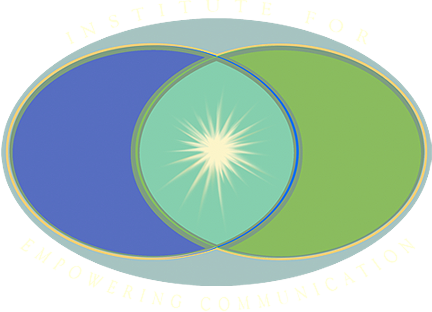Certification
Level 3
Empowerment Therapist, Coach or Practioner
Once you have completed Levels 1 and 2, you are eligible to apply for certification. The criteria for admission is to (a) embody the therapeutic attitudes, and (b) demonstrate understanding of, and ability to apply the concepts. If you are interested in becoming certified, write to Myra Walden at: empwermenttherapymw@gmailcom
-
Level 3 is a mentorship program. We review the material we studied in Levels 1 and 2, but this time you become a co-facilitator. Sometimes the facilitator will ask you to explain concepts, do presentations, answer questions and do role plays. They may also ask if you would mentor new students. This will give you an opportunity to test your understanding of the concepts and your ability to apply them, and continue to deepen embodiment of the therapeutic attitudes. The facilitator will give you ongoing feedback intended to help you grow and prepare for the final assessment.
-
Level 3 is 50 sessions. This level is a review of the foundational concepts and a mentorship program. We review the material we studied in Levels 1 and 2, but this time you become a co-facilitator. Sometimes the facilitator will ask you to explain concepts, do presentations, answer questions and do role plays. They may also ask if you would mentor new students. This will give you an opportunity to test your understanding of the concepts and your ability to apply them, and continue to deepen embodiment of the therapeutic attitudes. Level 3 prepares you for the assessment.
-
In Level 3 we introduce two books to support your development as an Empowerment Practitioner.
1) Nonviolent Communication: A Language of Life by Marshall Rosenberg
This powerful and transformative model will help you address challenging situations with your clients when they arise. And it will be invaluable to support clients when they have conflict in relationships. We invite you to read a description of the model here.
2) Personality Types: Using the Enneagram for Self-Discovery by Don Richard Riso and Russ Hudson
The Enneagram is a personality system that describes people in nine types. each with their own motivations, fears and internal and interpersonal dynamics. There are multiple books on the Enneagram typology, but this version goes into a level of depth that others don’t. Studying the description of our Enneagram personality type increases self-awareness, an indispensable component of accompanying work. Self-aware people are safer to be with. If you don’t know your type, take a free test at Enneagram Universe.
-
Write to Myra Walden to request an assessment: empowermenttherapymw@gmail.com Submit the following packet in the Google document that we will provide.
1) NONVIOLENT COMMUNICATION - Read the book Nonviolent Communication: A Language of Life by Marshall Rosenberg, and write a 20-pages reaction paper. What insights did you gain by reading the book? How will you apply the learning to your life and your Empowerment practice?
2) ENNEAGRAM - Read the book Personality Types: Using the Enneagram for Self-Discovery by Don Richard Riso, and write a 8-pages paper. Summarize the integration-disintegration scale for your personality type. What insights did you gain? How will you apply the learning to your life and your Empowerment practice?
3) RECORDINGS - Submit five 50-minute recordings of real (not role-play) Empowerment sessions with three non-paying clients (family member, friend or ET colleague).
4) SELF-EVALUATIONS - For each session, include a self-assessment using this form.
5) JOURNALING - Once you apply for an assessment and submit your packet, during the review period, enter a journal entry once a week for 12 weeks using the Empowerment Journal form. To help us manage our time, please upload one journal entry per week, vs. two or more at a time.
6) EVALUATIONS FROM OTHERS
Feedback from the group facilitator.
Evaluations from your colleagues every time you lead a session during the weekly meetings. What was supportive? What were moments of disconnection? What are the areas of learning and growth for you? What would you like to do more of?
Feedback from non-paying clients. How was the session for you? What did you learn about yourself? What were the moments when you felt supported? Discouraged? What would you have liked to do differently?
Allow three months for us to review your packet. Upon completion, we will schedule an assessment date, if we think you’re ready. If not, we will give you feedback for further preparation.
-
You will meet with the Assessors Team —two or three experienced practitioners— online for three hours. We will record the session for further review.
Content - We will ask you to:
1) Guide the group in the Inner Silence Meditation without reading it.
2) Answer fifteen random questions on the following topics. Give examples different from those in the book.
Key differentiations and their application to the therapeutic relationship and Empowerment work.
Empowerment Therapy interventions.
The Therapeutic Attitudes and their relevance to the therapeutic relationship.
ET Principal tenets and their application to Empowerment work.
3) Discuss the Actualizing Tendency as it relates to nondirectiveness and the collaborative paradigm.
4) Hold a Liberating Role Play during which you demonstrate embodiment of the therapeutic attitudes and ability to apply the concepts.
Logistics - To protect flow please call from a quiet place with high-speed, reliable internet connection.
Grading - The grading is based on a rubric, which you will receive when you apply for certification.
Second Chance - If you do not pass the first assessment, you will be able to sit for it once more.
Important Note - Please be aware that not all candidates attain certification. However, we trust that following the certification path will support your personal and professional growth, regardless.
Agreement - Once you pass the assessment, and before you are certified, we ask that you review and sign an ethics agreement.
-
Yes. Reviewing the certification packet and conducting the assessment is labor intensive. For mutuality and sustainability, we want to be compensated for this effort. The following is our sliding-fee scale.
$450 — $300 USD
To support our work, please choose the highest amount you can contribute comfortably.
-
If you are a mental health professional, you will be qualified to represent yourself as an Empowerment Therapist, Empowerment Psychologist, Empowerment Counselor or Empowerment Social Worker. If you don’t have a background and credentials in mental health, your title will be Empowerment Practitioner. If you practice coaching, your title will be Empowerment Coach.
-
No. Empowerment work is not a substitute for psychotherapy. If you don’t have a mental health background, we advise that when clients report symptoms of depression, anxiety, post-traumatic stress, restrictive eating, addictions, etc. you refer clients to mental health professionals. This will ensure that you clients receive the care they need. That said, Empowerment work complements therapy and can be done in conjunction with it.
-
Certification is valid for one year. To renew certification, we require eight hours of continuing education sessions offered by certified Empowerment Practitioners. Submit a report that includes the topic, presenter, date and location. In addition, we request a yearly renewal fee. The following is our sliding fee scale.
$150 - $50 USD
To support our work, please choose the highest amount you can contribute comfortably.
-
The Institute for Empowering Communication (IEC) will endorse your work, which increases credibility.
You will have a section on the IEC website to offer your services as a certified Empowerment Practitioner.
If you are a certfied trainer, vs. a certified practioner, you can offer continuing education sessions for the public and those who want to renew their certification, and you can list your offerings on the IEC website.
-
If you have questions, email Myra at: empowermenttherapymw@gmail.com



